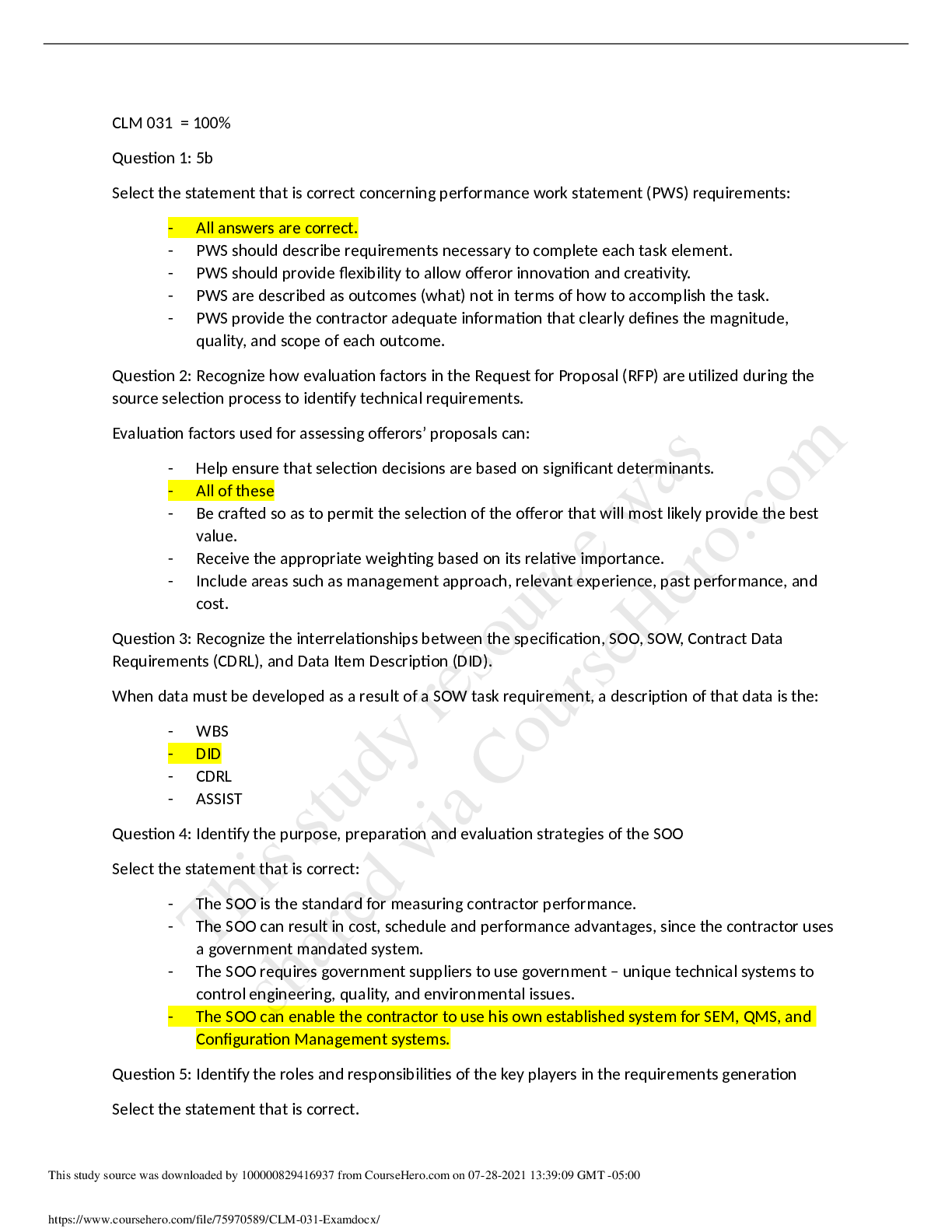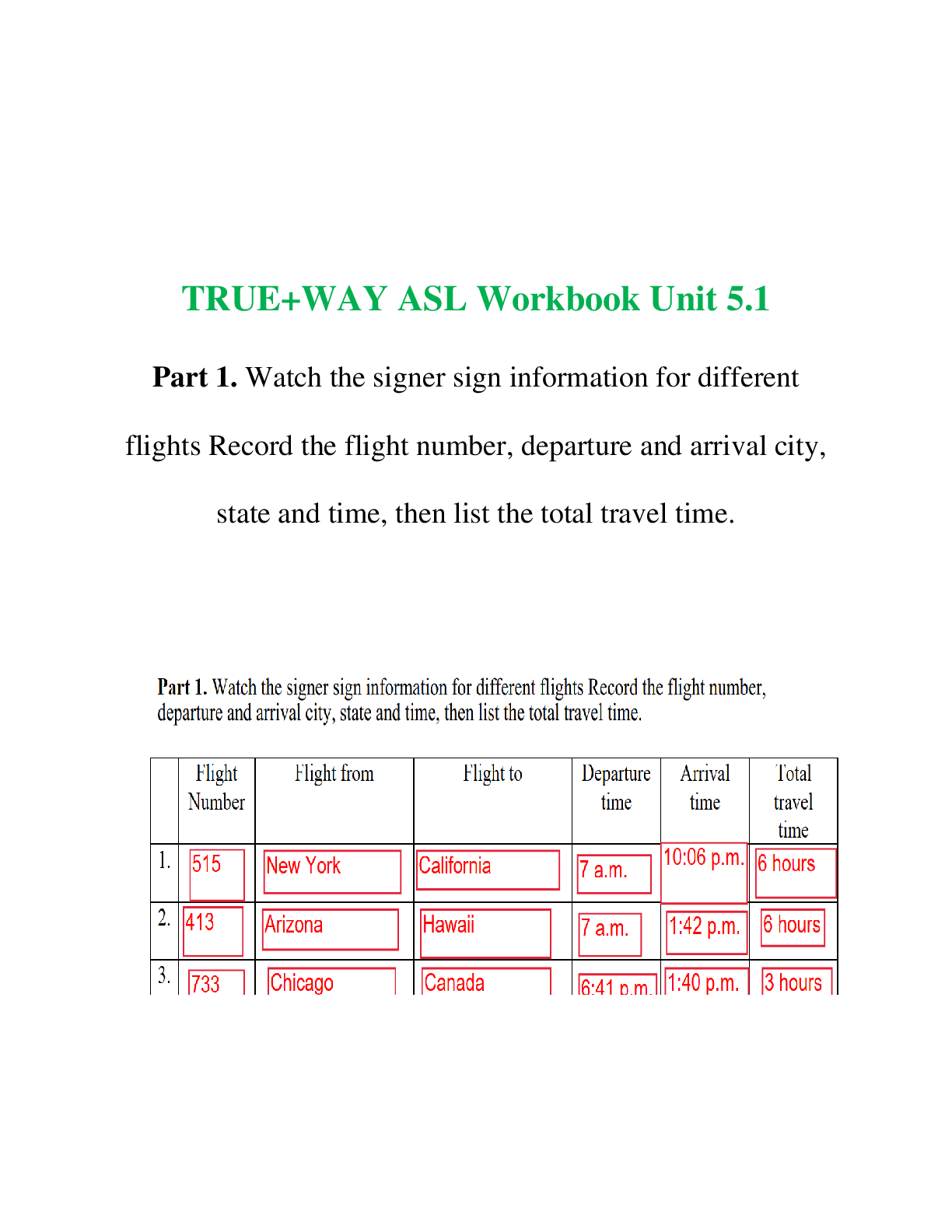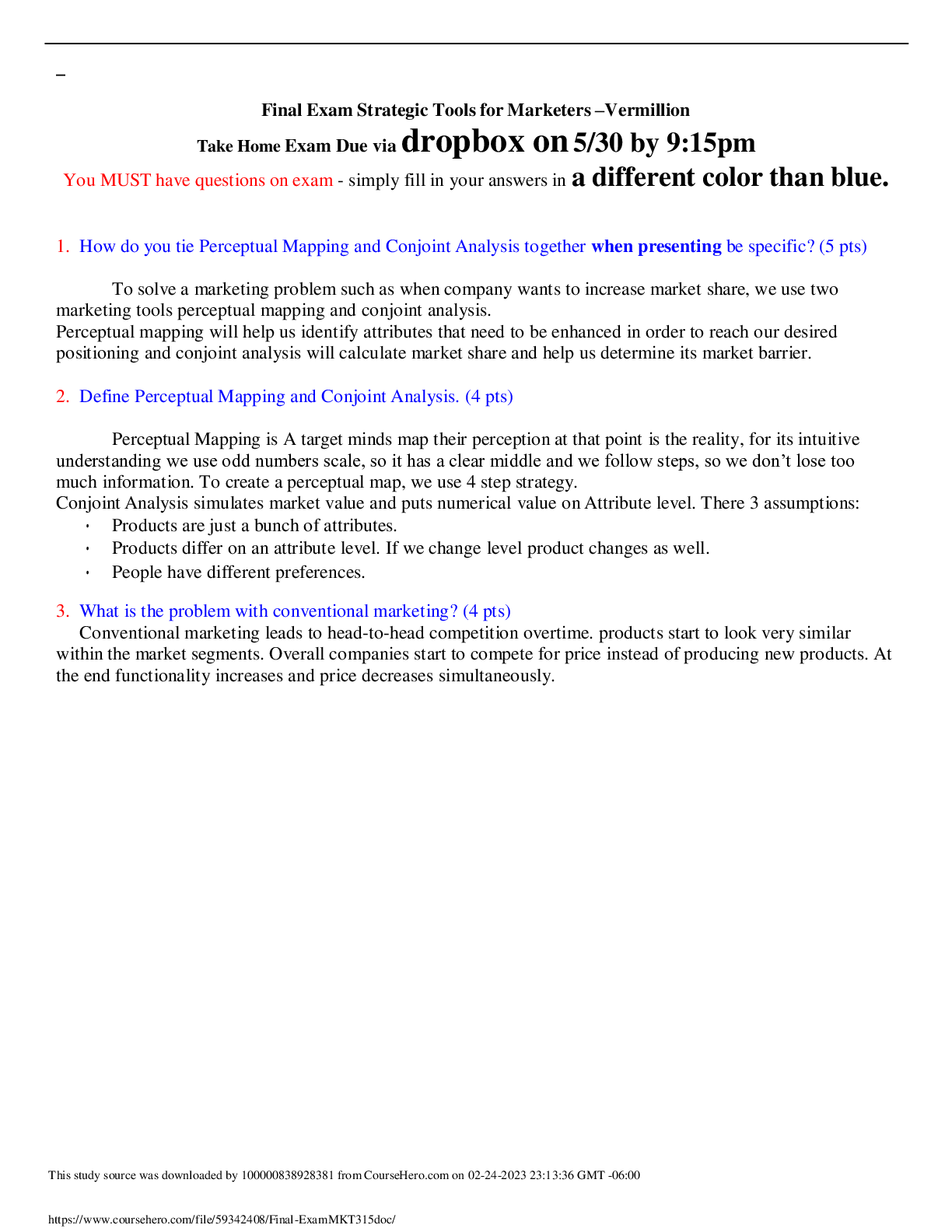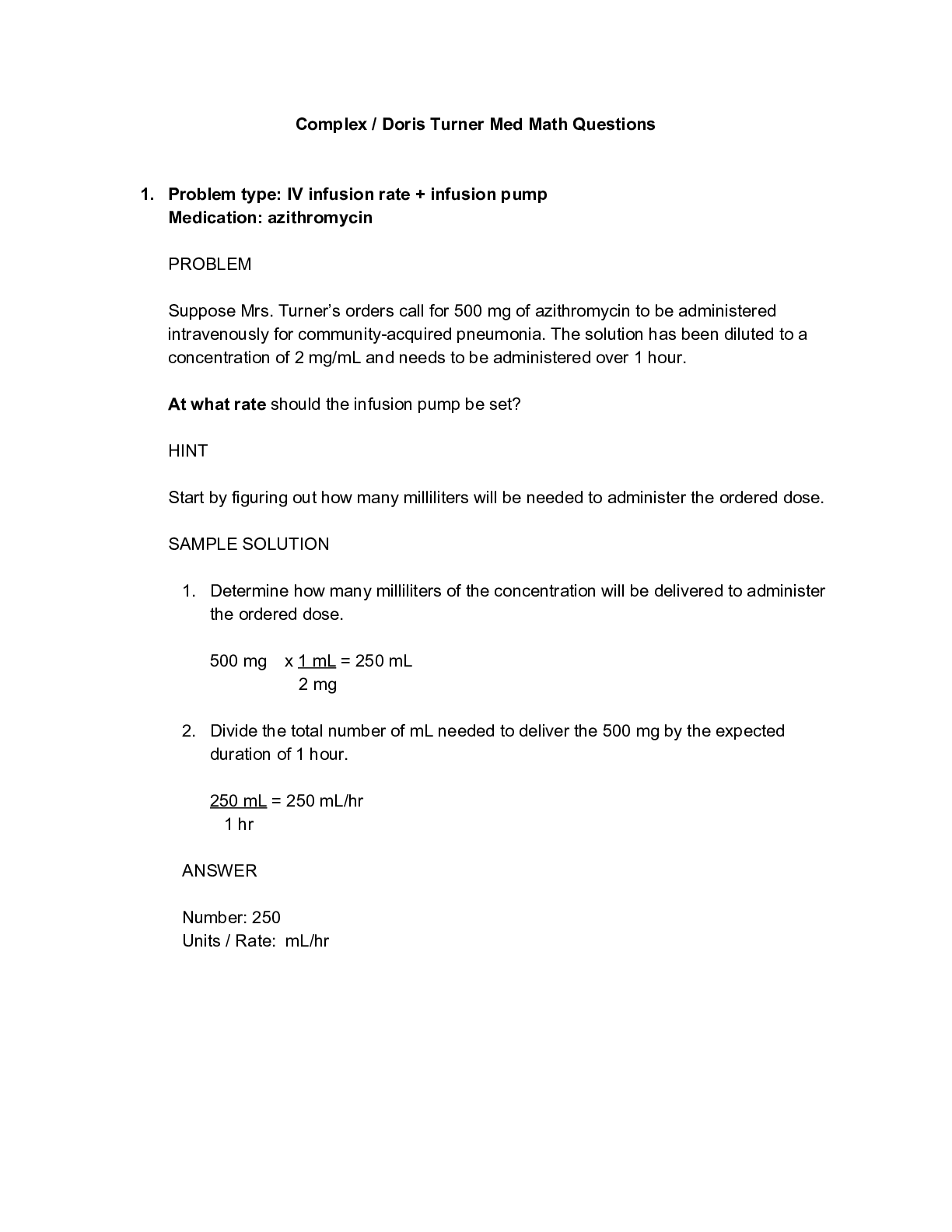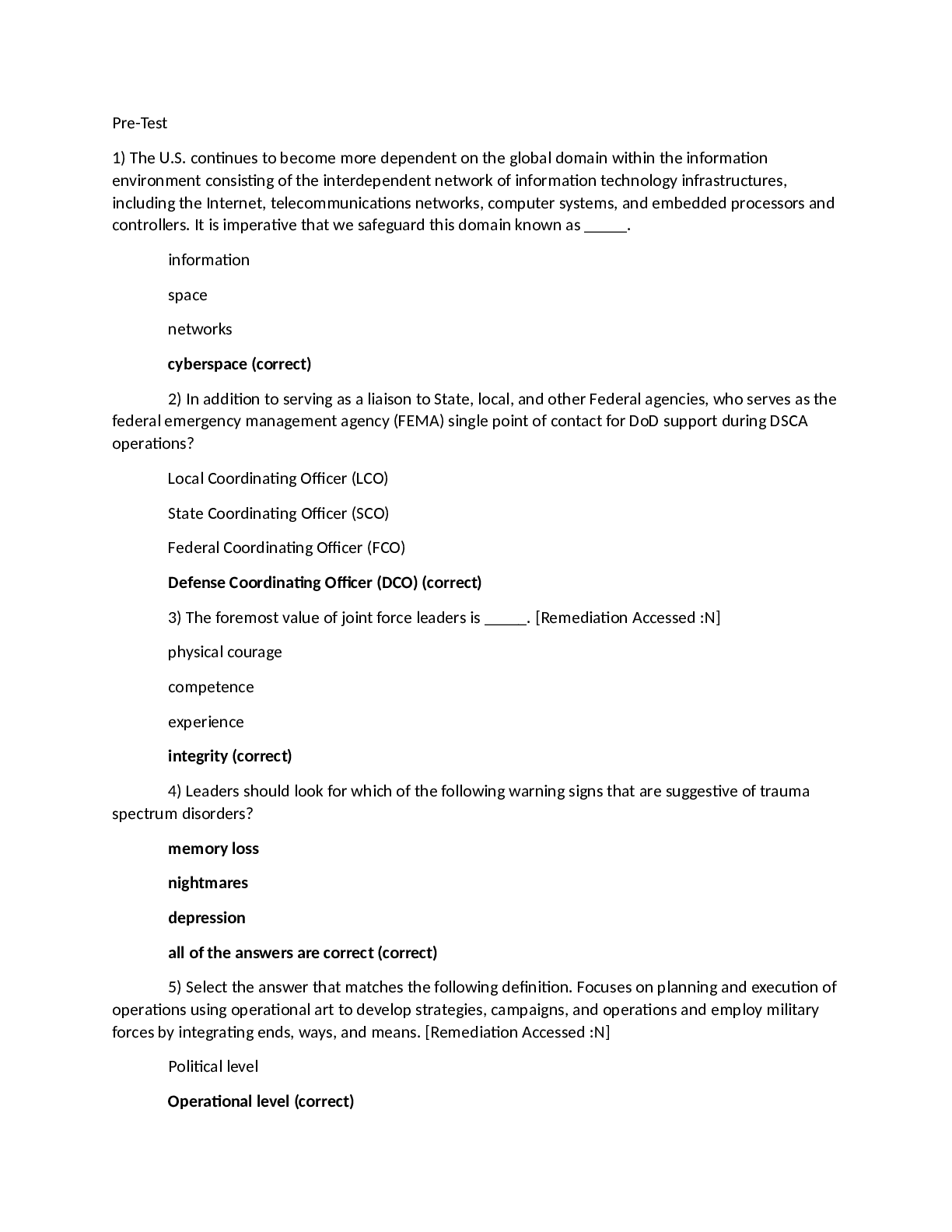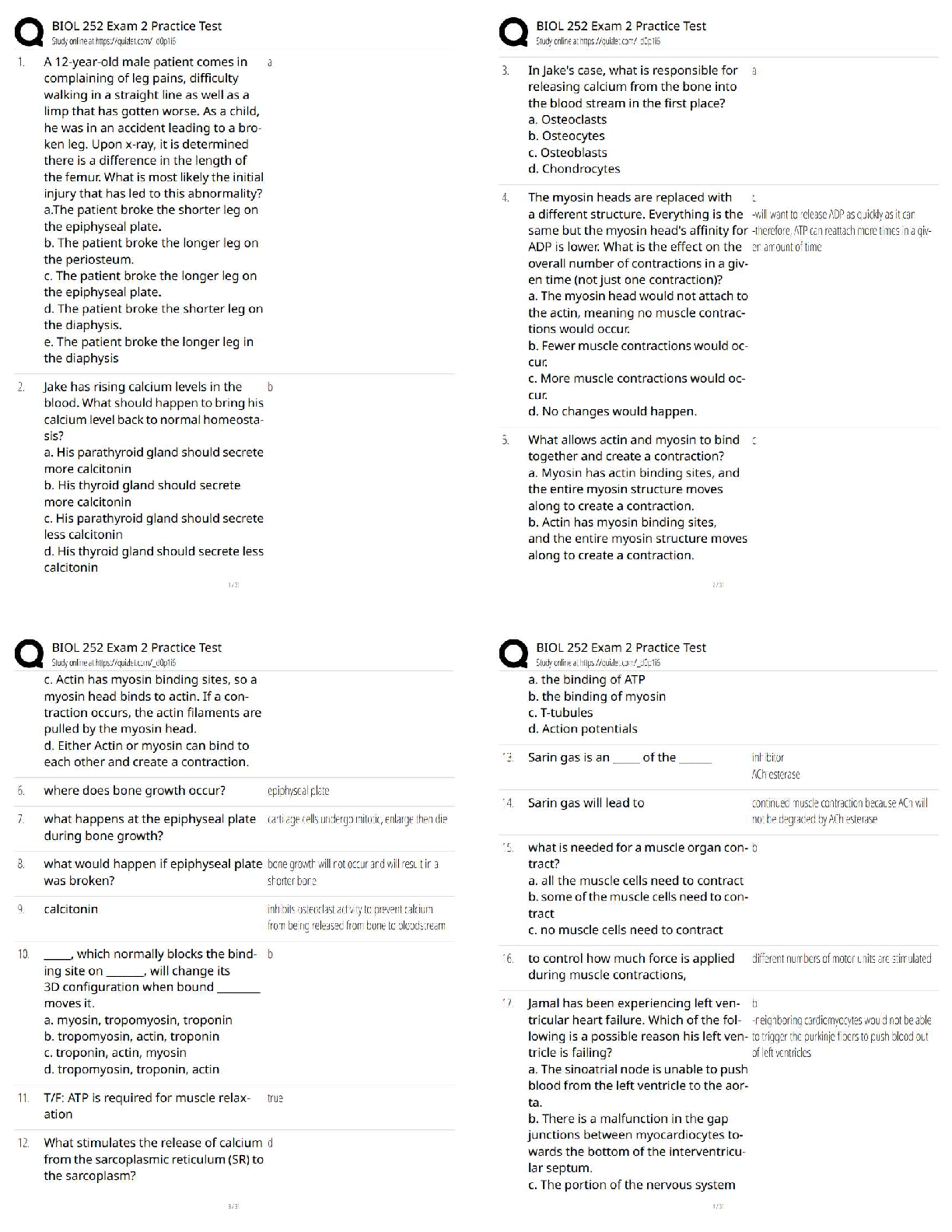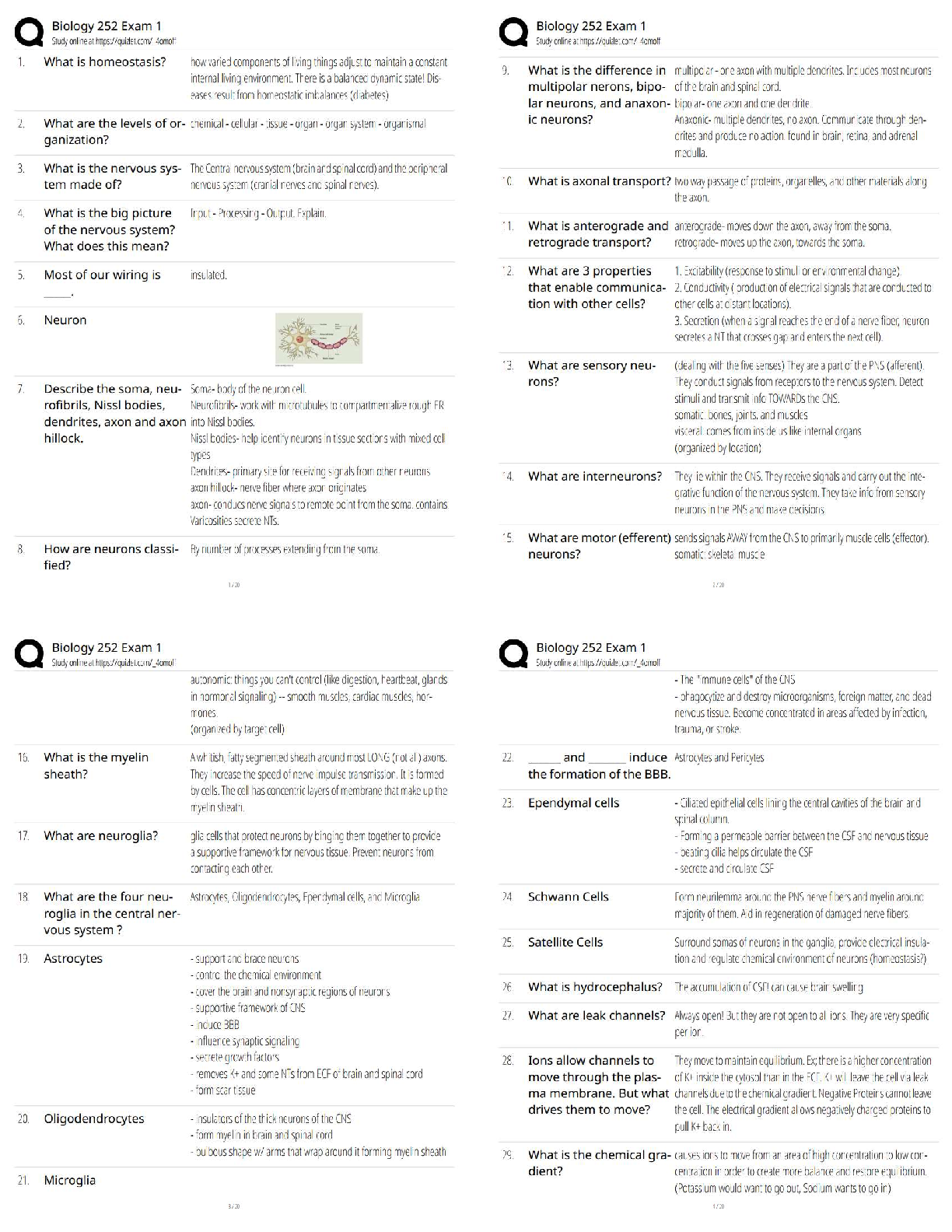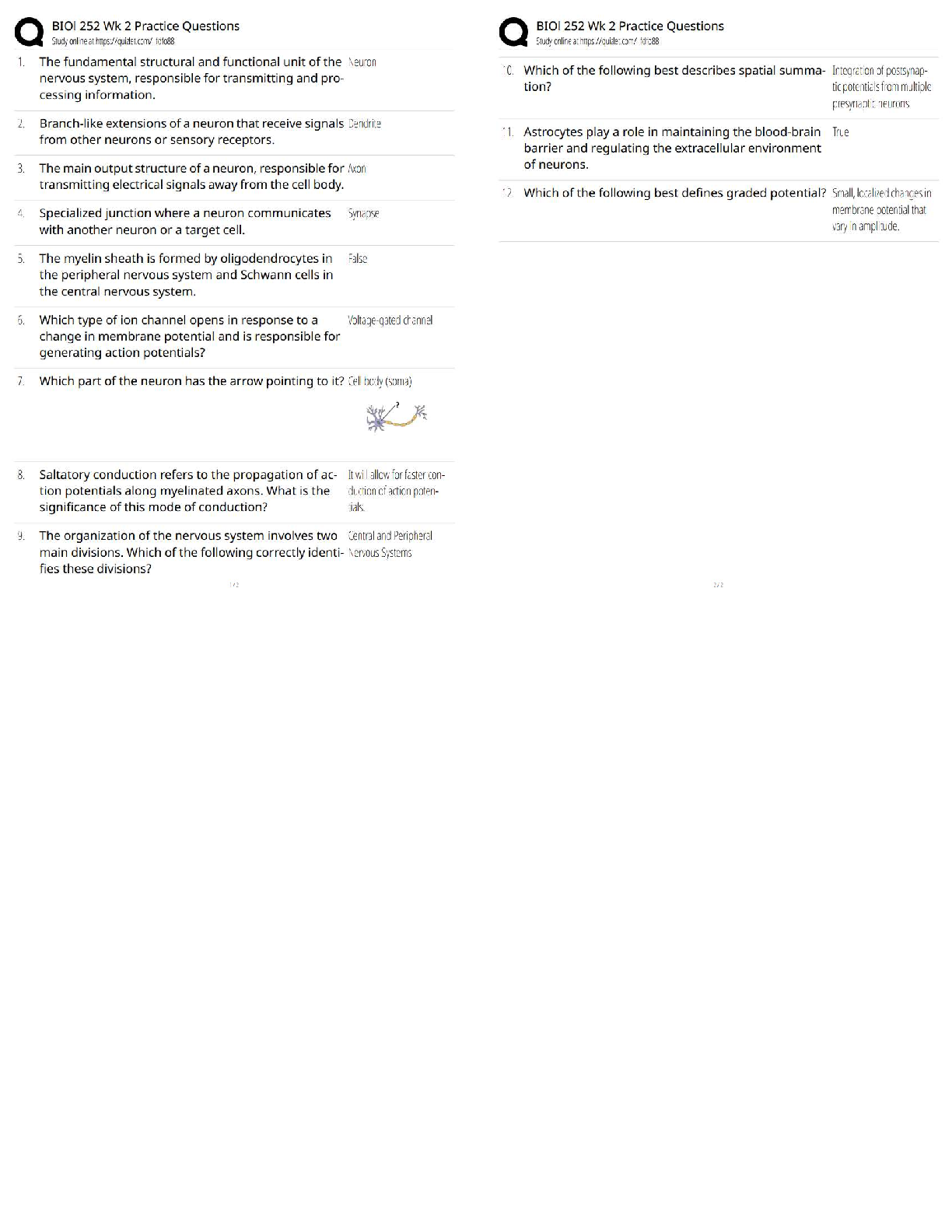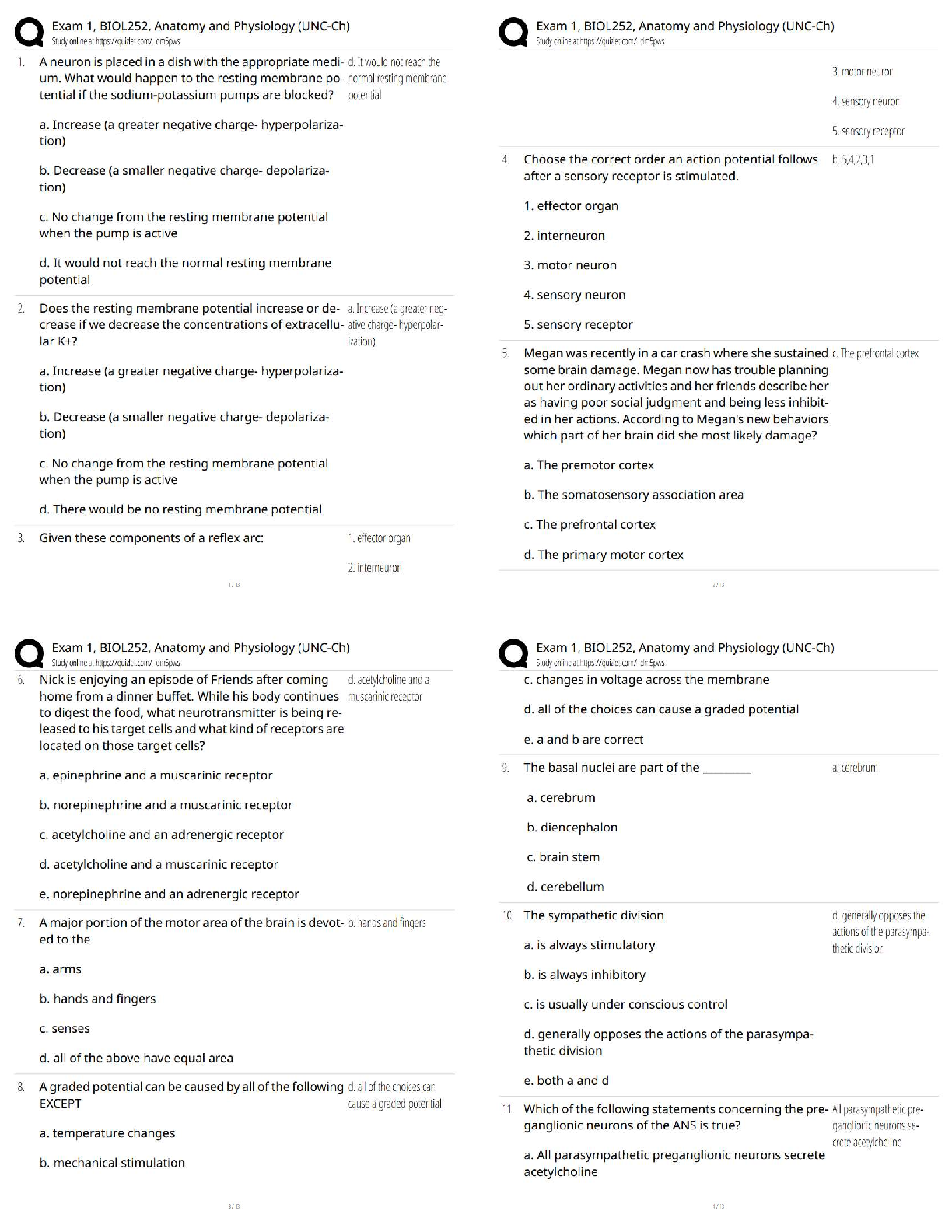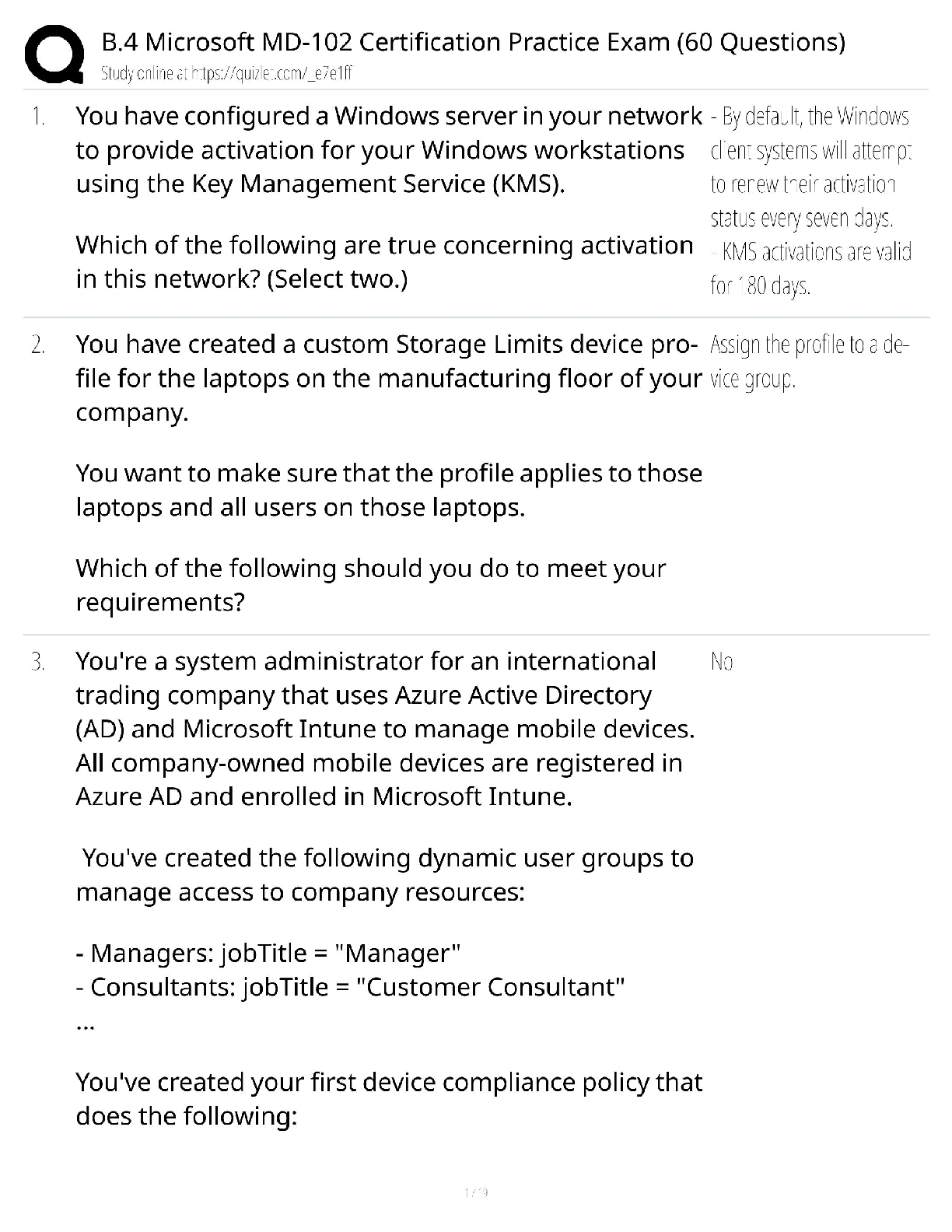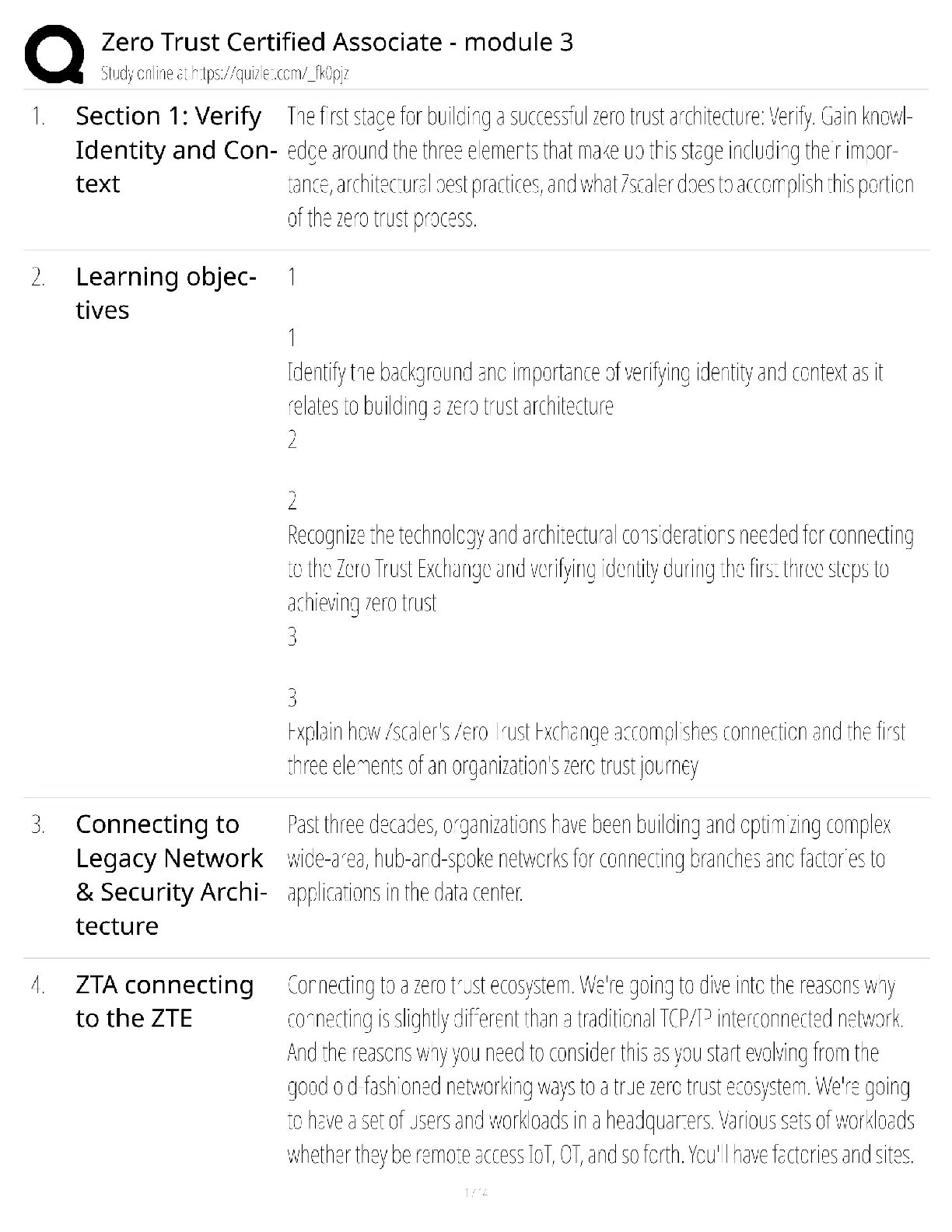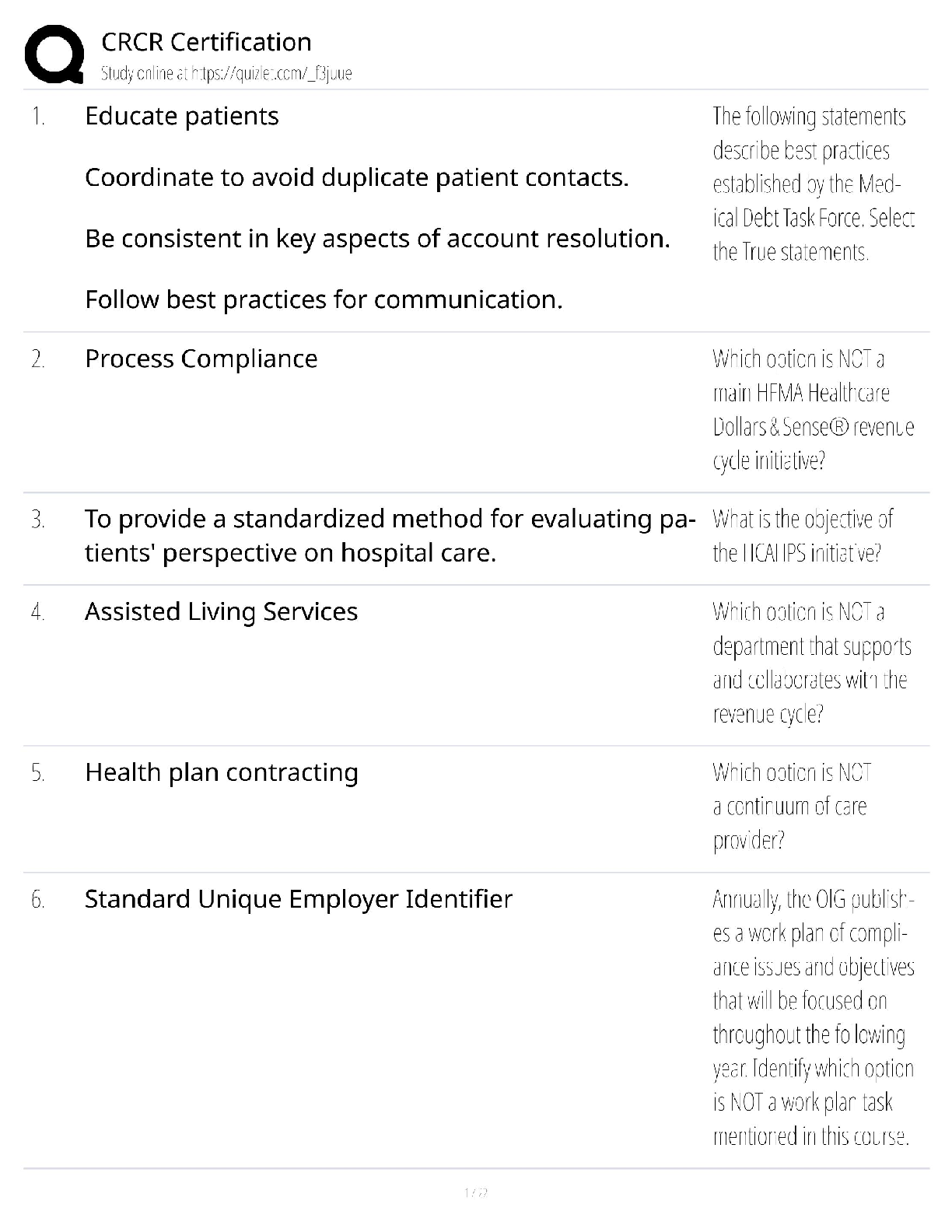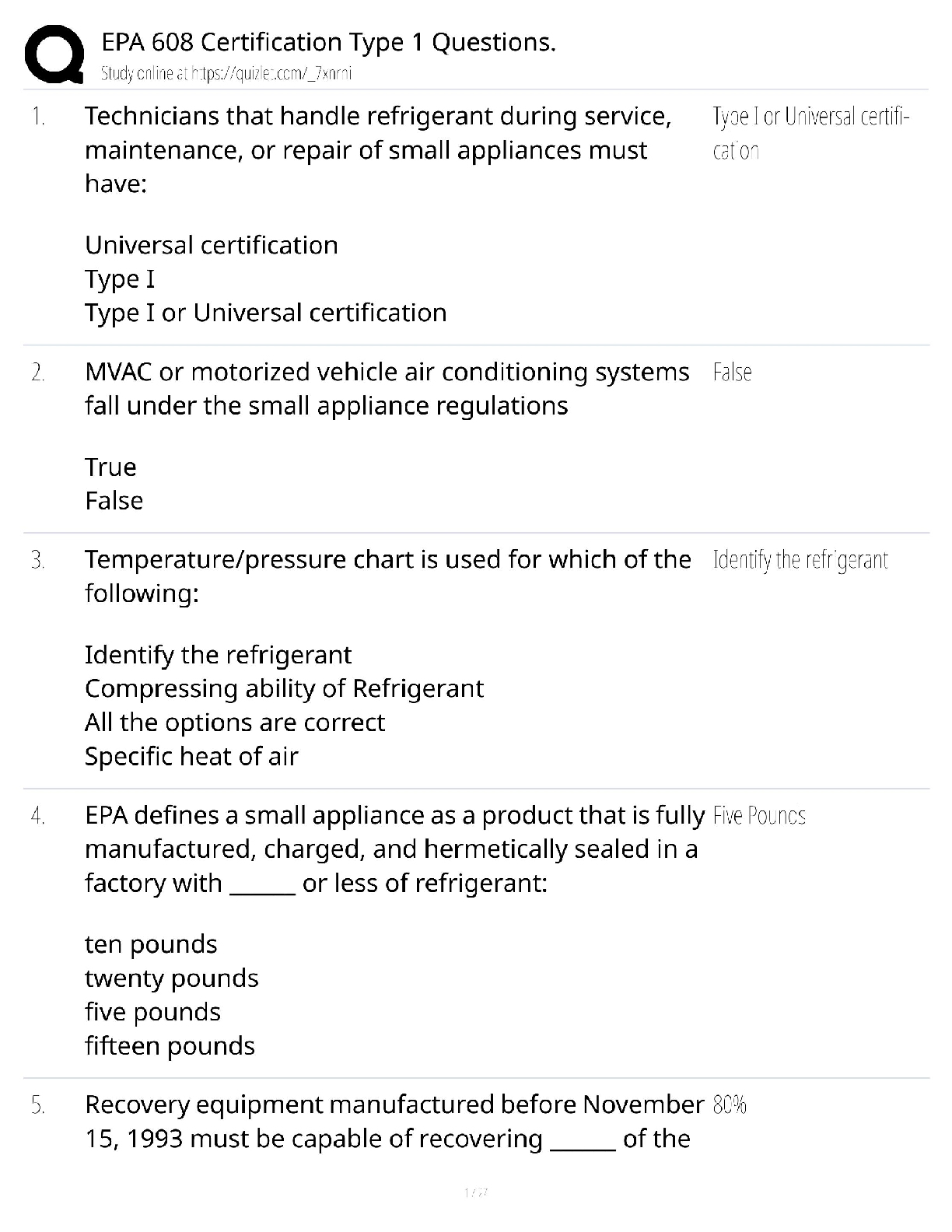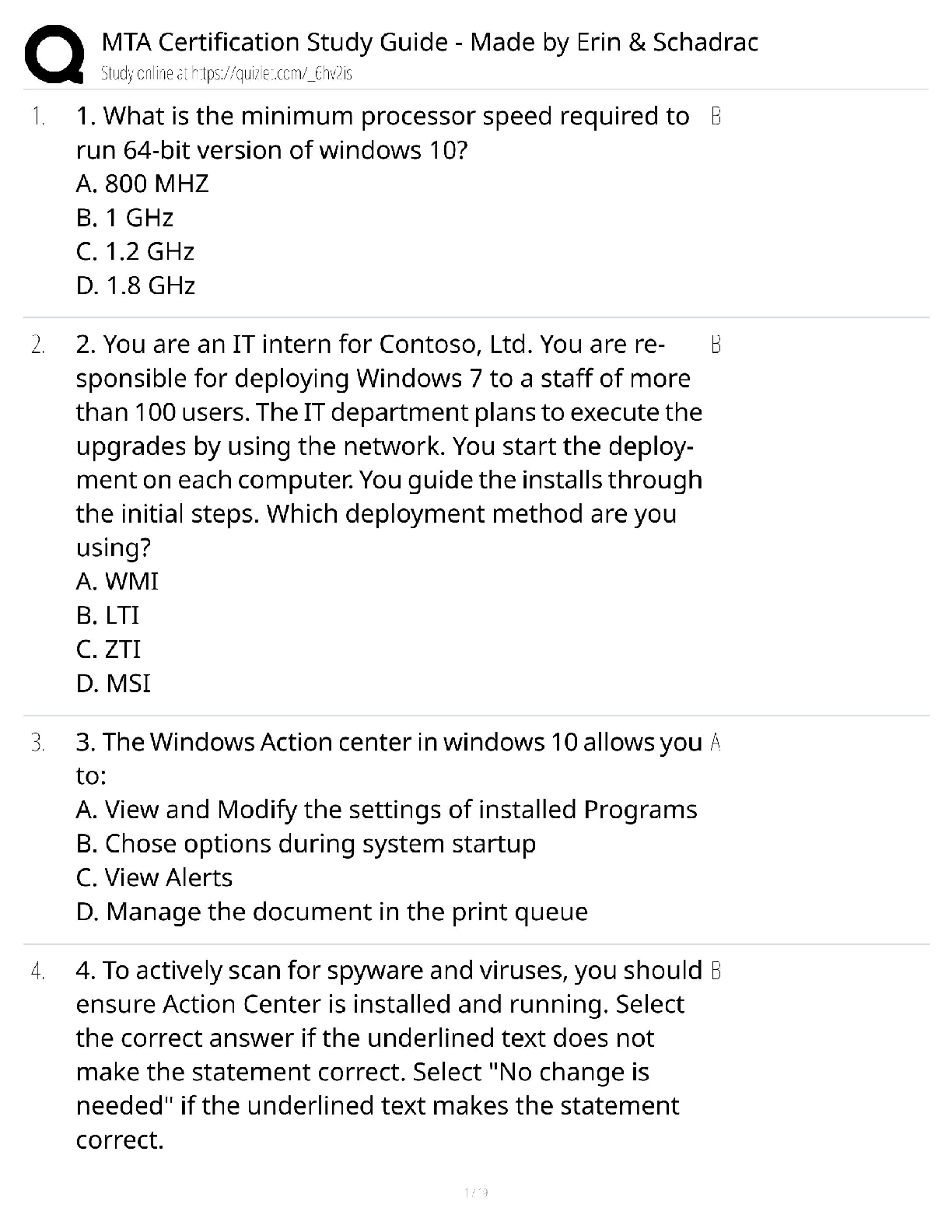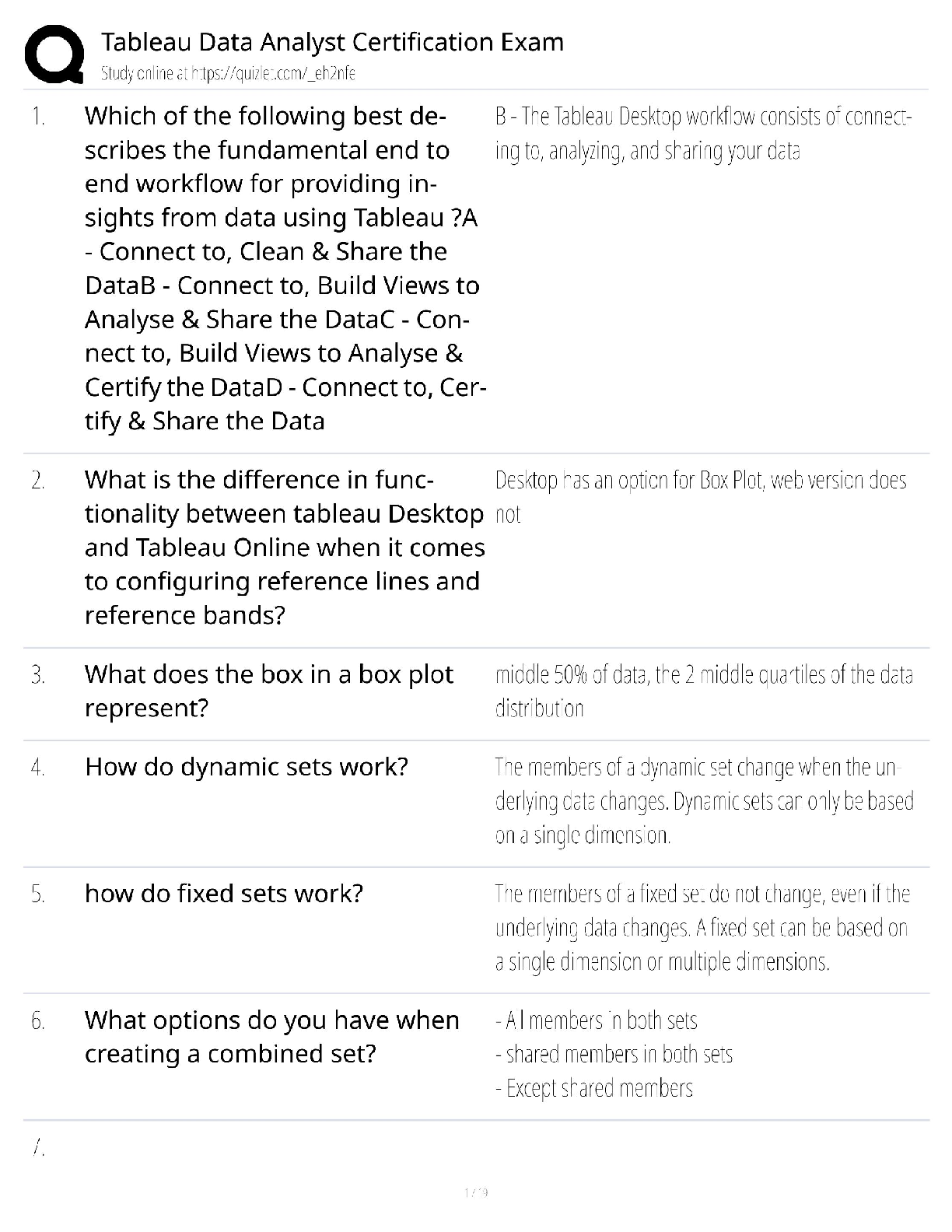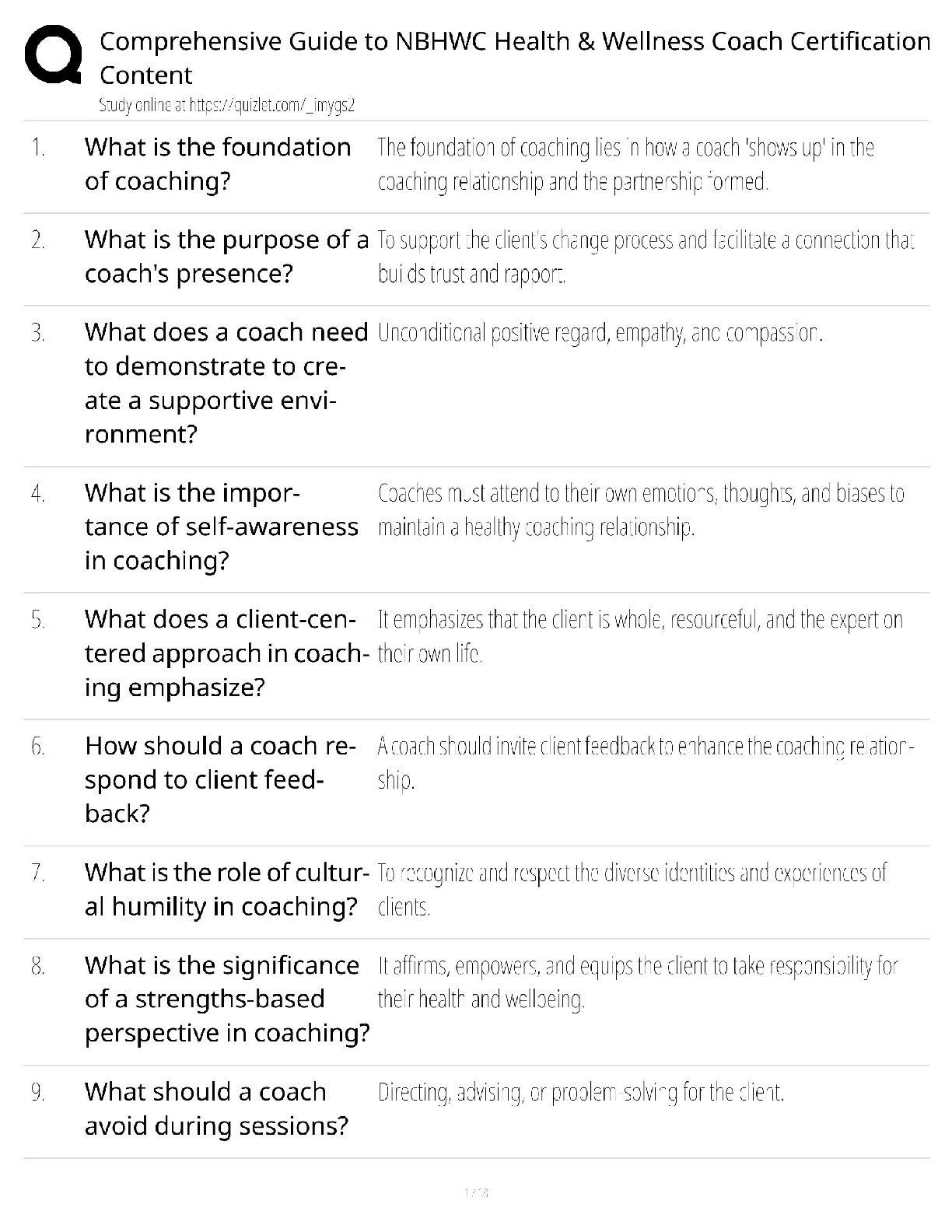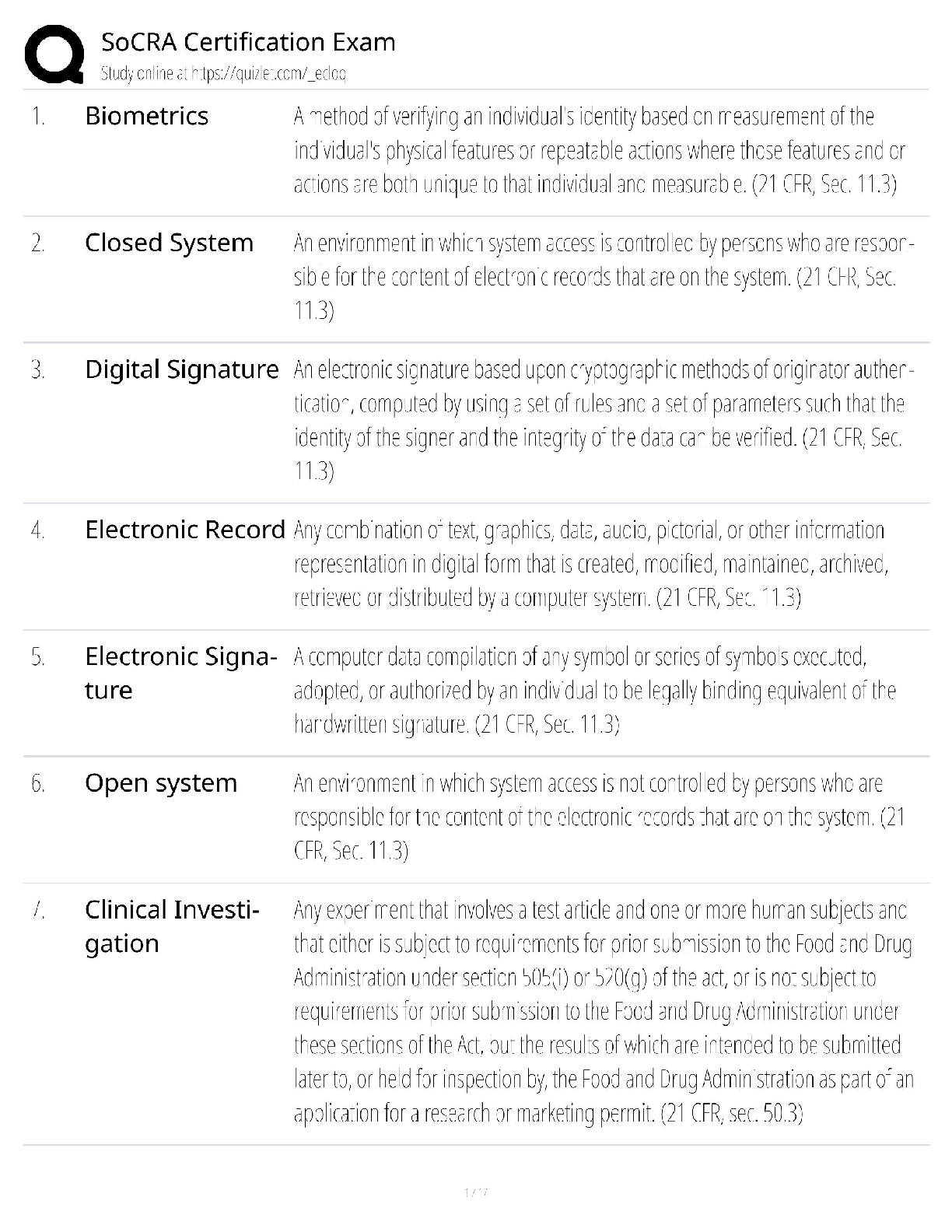Anatomy and Physiology - A&P 2 > QUESTIONS & ANSWERS > BIO202_MH_V3: Lymphatic System (GRADED A+) (All)
BIO202_MH_V3: Lymphatic System (GRADED A+)
Document Content and Description Below
Page path BIO202_MH_V3 Topic 4: Lymphatic System Started on Friday, October 22, 2021, 3:31 PM State Finished Completed on Friday, October 22, 2021, 3:57 PM Time taken 26 mins Grade 40.0 ... 0 out of 40.00 (100%) Question 1 Correct 2.00 points out of 2.00 Flag question Question text Lymph nodes are surrounded by a dense connective tissue called Select one: a. cortex. b. capsule. c. reticulum. d. trabeculum. e. basement membrane. Question 2 Correct 2.00 points out of 2.00 Flag question Question text Which of the following statements accurately describes the thymus gland? Select one: a. The thymus gland lacks a capsule. b. The thymus gland contains many reticular fibers. c. The thymus gland decreases in size after age 60. d. Lymphocytes are found only in the medulla of the thymus gland. e. The thymus increases in size with aging. Question 3 Correct 2.00 points out of 2.00 Flag question Question text All of the following are components of lymph, except Select one: a. water. b. ions. c. nutrients. d. hormones. e. red blood cells. Question 4 Correct 2.00 points out of 2.00 Flag question Question text Lacteals are Select one: a. a type of lymphocyte. b. a nonspecific defense. c. lymphatic vessels in the lining of the small intestine. d. the sinuses inside a lymph node. e. germinal centers. Question 5 Correct 2.00 points out of 2.00 Flag question Question text The only structures that filter lymph is/are the Select one: a. tonsils. b. spleen. c. lymph nodes. d. thymus. Question 6 Correct 2.00 points out of 2.00 Flag question Question text Describe the wall of lymphatic capillaries. Select one: a. Thin-walled, with tightly joined squamous cells b. Thin-walled, with tightly joined cuboidal cells c. Thick-walled, with overlapping squamous cells d. Thick-walled, with tightly joined squamous cells e. Thin-walled, with overlapping squamous cells Question 7 Correct 2.00 points out of 2.00 Flag question Question text The palatine tonsils Select one: a. interfere with breathing when enlarged. b. are located at the junction of the oral cavity and pharynx. c. are located superior to the palate. d. are really lymph nodes in disguise. e. are located in the nasopharynx. Question 8 Correct 2.00 points out of 2.00 Flag question Question text Lymph movement is assisted by Select one: a. contraction of skeletal muscle. b. contraction of smooth muscle in lymph vessel. c. pressure changes in the thorax during respiration. d. compression of lymphatic vessels. e. All of these choices are correct. Question 9 Correct 2.00 points out of 2.00 Flag question Question text The thymus is where ____ mature and become functional immune cells. Select one: a. pre-T cells b. pre-B cells c. macrophages d. null cells e. C cells. Question 10 Correct 2.00 points out of 2.00 Flag question Question text The spleen Select one: a. filters damaged red blood cells from the blood. b. changes undifferentiated lymphocytes into competent lymphocytes. c. is necessary for life. It can't be removed without causing death. d. produces several different hormones with unknown function. e. has additional digestive functions. Question 11 Correct 2.00 points out of 2.00 Flag question Question text Peyer patches are lymphatic nodules found in the Select one: a. lymph nodes. b. spleen and tonsils. c. appendix and tonsils. d. small intestine and appendix. Question 12 Correct 2.00 points out of 2.00 Flag question Question text Mucosal associated lymphatic tissues (MALT) are: Select one: a. aggregates of macrophages located in the intestines. b. clusters of splenocytes located in the lamina propria of mucous membranes. c. clumps of mucous lining the lumen of the gastrointestinal tract. d. aggregates of lymphatic tissue scattered throughout the lamina propria of mucous membranes. Question 13 Correct 2.00 points out of 2.00 Flag question Question text The lymphatic system plays a role in maintaining fluid balance within the body by Select one: a. adding lymph to GI tract secretions. b. returning interstitial fluid to the plasma. c. transporting lymph from tissues to the liver. d. carrying excess fluid to the kidneys to be excreted. e. actively absorbing fluid from the blood. Question 14 Correct 2.00 points out of 2.00 Flag question Question text Germinal centers are the sites of Select one: a. increased blood flow to the lymph nodes. b. fluid production. c. increased flow of lymph from infected tissues. d. entrance of lymph into lymph nodes. e. proliferation of lymphocytes in the lymph nodes. Question 15 Correct 2.00 points out of 2.00 Flag question Question text Tonsils Select one: a. increase in size in adults. b. are located in both the oral and abdominal cavities. c. provide protection against bacteria entering the oral and nasal cavities. d. contain red pulp and white pulp. e. are not functional in children. Question 16 Correct 2.00 points out of 2.00 Flag question Question text Bacteria and debris are actively removed from the lymph by _____ in the sinuses of lymph nodes. Select one: a. trabecular cells b. germinal cells c. macrophages. d. lymphocytes e. plasma cells Question 17 Correct 2.00 points out of 2.00 Flag question Question text Which of the following is NOT a function of the lymphatic system? Select one: a. Defending from infection caused by microorganisms and other foreign substances. b. Aiding in erythropoiesis of red blood cells. c. Maintaining fluid balance by returning excess interstitial fluid to the blood. d. Absorbing and transporting lipids from the digestive tract. Question 18 Correct 2.00 points out of 2.00 Flag question Question text Lymphatic tissue contains an interlaced network of reticular fibers that functions to Select one: a. produce lymphocytes. b. produce capsules around lymph nodes. c. attack microorganisms. d. line the walls of lymphatic vessels. e. trap microorganisms. Question 19 Correct 2.00 points out of 2.00 Flag question Question text The lymphatic system is involved in Select one: a. lipid absorption from the digestive tract. b. transporting lymph from the intestines to the liver. c. maintenance of pH in the tissues. d. production of erythrocytes. e. protein metabolism. Question 20 Correct 2.00 points out of 2.00 Flag question Question text The lymphatic system differs from the cardiovascular system in that Select one: a. the lymphatic system only carries fluid away from tissues. b. the lymphatic vessels have their own "pump" to assist flow. c. lymph capillaries do not contain any fluid. d. lymph capillaries allow free movement of fluid in and out of the capillaries. e. lymph circulates fluids and cardiovascular does not [Show More]
Last updated: 3 years ago
Preview 1 out of 10 pages
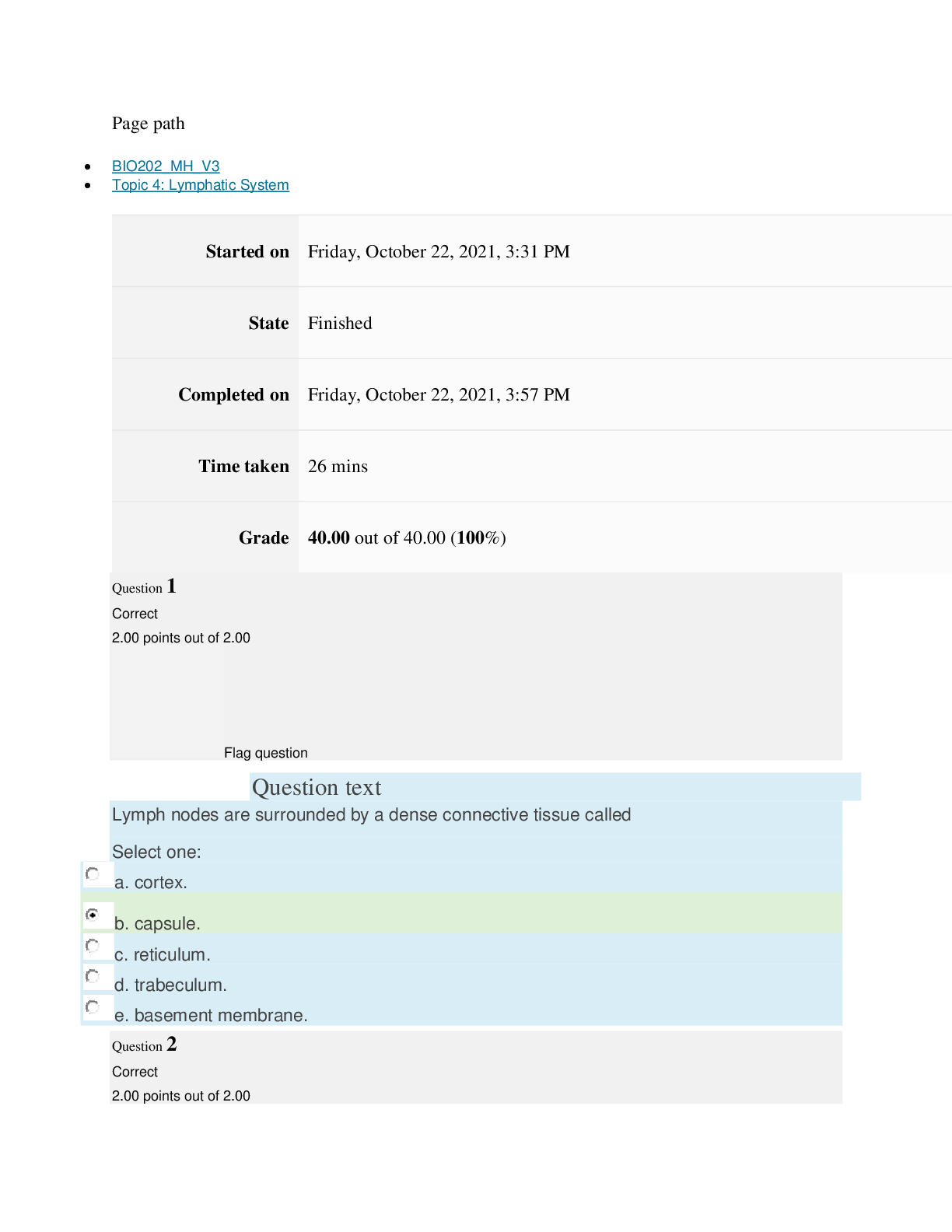
Buy this document to get the full access instantly
Instant Download Access after purchase
Buy NowInstant download
We Accept:

Also available in bundle (1)
Click Below to Access Bundle(s)

ANATOMY AND PHYSIOLOGY 2
TOPICS: CUMULATIVE MIDTERM EXAMS CARDIOVASCULAR SYSTEM: BLOOD CARDIOVASCULAR SYSTEM: THE HEART CARDIOVASCULAR SYSTEM: BLOOD VESSELS AND CIRCULATION LYMPHATIC SYSTEM IMMUNITY RESPIRATORY SYSTEM...
By Book Worm, Certified 3 years ago
$30
14
Reviews( 0 )
$7.00
Can't find what you want? Try our AI powered Search
Document information
Connected school, study & course
About the document
Uploaded On
Dec 04, 2022
Number of pages
10
Written in
All
Additional information
This document has been written for:
Uploaded
Dec 04, 2022
Downloads
0
Views
156


